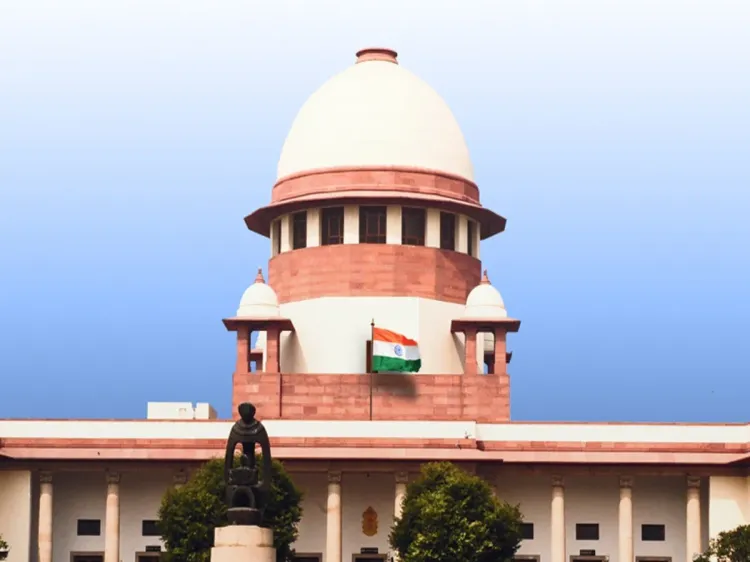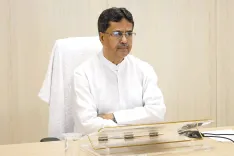Will the Supreme Court Review the Liquidation of Bhushan Steel?

Synopsis
Key Takeaways
- Supreme Court to review liquidation petitions.
- JSW Steel's resolution plan found non-compliant.
- Critical implications for financial sector.
- Hearing scheduled for July 31.
- BPSL's plant capacity is 4.5 MTPA.
New Delhi, July 31 (NationPress) The Supreme Court is set to review the petitions contesting its decision to liquidate the financially troubled Bhushan Power and Steel Limited (BPSL) during an open court session on Thursday.
According to the causelist available on the apex court's official website, a panel comprising Chief Justice of India (CJI) B.R. Gavai and Justice S.C. Sharma will address the review petitions submitted by JSW Steel and BPSL's financial backers on July 31.
Previously, on Tuesday, the CJI Gavai-led panel, after reviewing the case in chambers, decided to consider the review petitions in an open court session.
“Application(s) for listing review petition(s) in open Court and application for oral hearing are allowed. Issue notice. List these matters on 31.07.2025 at 03:00 p.m.,” the court instructed.
In a ruling made on May 2 this year, a bench led by Justices Bela M. Trivedi and Sharma mandated the liquidation of BPSL, asserting that JSW Steel’s ₹19,300 crore resolution plan for the insolvent firm was not compliant with the Insolvency and Bankruptcy Code (IBC), 2016.
The Justice Trivedi-led panel criticized the resolution professional, the Committee of Creditors (CoC), and the National Company Law Tribunal (NCLT) for neglecting the fundamental goals of the IBC, which include timely insolvency resolution, asset value maximization, and adherence to associated regulations.
It concluded that the resolution plan from JSW Steel did not safeguard creditor interests and appeared to be approved by the CoC without a proper application of commercial judgment.
Subsequently, in a temporary relief to JSW Steel, the Supreme Court, through its order on May 26, mandated a status quo on the liquidation proceedings of BPSL “in the interest of justice.”
The apex court has halted the NCLT from continuing with the liquidation process initiated by BPSL’s former promoter, Sanjay Singhal, until the review petitions from JSW Steel and BPSL’s lenders regarding the May 2 decision are resolved.
BPSL's steel manufacturing plant in Odisha has a capacity of 4.5 million tonnes per annum (MTPA), which is a crucial component of JSW Steel’s total domestic capacity of 34.2 MTPA.







